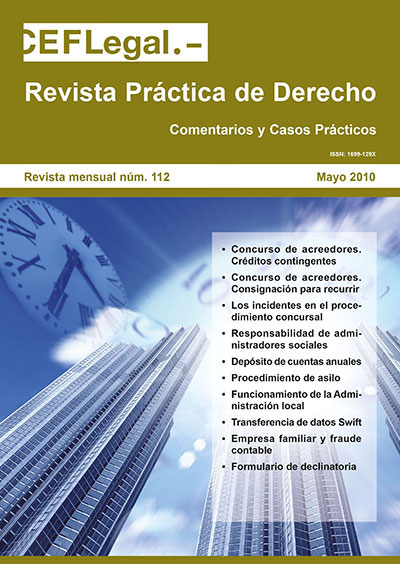El rechazo por el Parlamento Europeo al acuerdo EEUU-UE sobre transferencia de datos swift
DOI:
https://doi.org/10.51302/ceflegal.2010.12861Palabras clave:
Swift, datos bancarios, financiación del terrorismo, protección de datosResumen
Tras la entrada en vigor del Tratado de Lisboa, el 1 de diciembre de 2009, el equilibrio de poderes dentro de la Unión Europea se ha visto sensiblemente modificado. Si bien el sistema de codecisión entre Consejo y Parlamento no es algo novedoso, se extiende desde entonces a un sinnúmero de materias. La no adopción del Acuerdo UE-EEUU sobre tratamiento y transferencia de datos de mensajería financiera de la UE a los EEUU, a efectos del programa de seguimiento de la financiación del terrorismo, que ya había entrado en vigor provisionalmente tras ser adoptado por el Consejo de la Unión, es una prueba de este cambio.
Mediante este acuerdo, los EEUU tendrían acceso a los datos Swift, almacenados por esta sociedad en Europa y relativos a las transacciones bancarias intraeuropeas, a efectos de investigar la financiación del terrorismo. Anteriormente, los EEUU accedían a los mismos merced a un servidor de Swift ubicado en su territorio, donde se almacenaban también las transacciones intraeuropeas. Swift anuncia su intención de almacenar los datos de estas transferencias exclusivamente en Europa, obligando al gobierno de los EEUU a negociar un acuerdo con la UE, si no quiere quedar excluido del conocimiento de dichos datos. Dicho acuerdo es suscrito con el Consejo de la UE el día anterior a la entrada en vigor del Tratado de Lisboa, con lo que se excluye la participación del Parlamento Europeo en su negociación y conclusión.
Éste rechaza finalmente el acuerdo, preocupado por las escasas garantías a la protección de datos que considera existen en el mismo, a la falta de reciprocidad y, posiblemente, a su anterior marginación del proceso.















